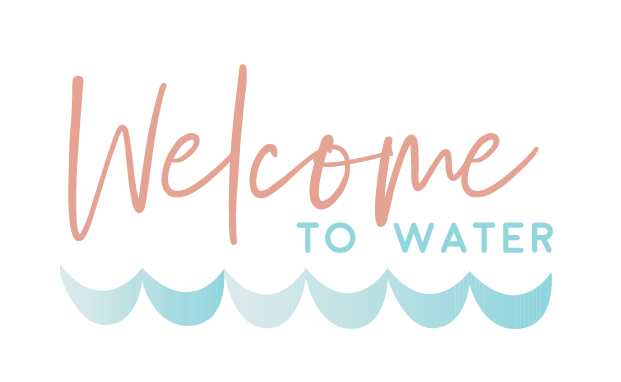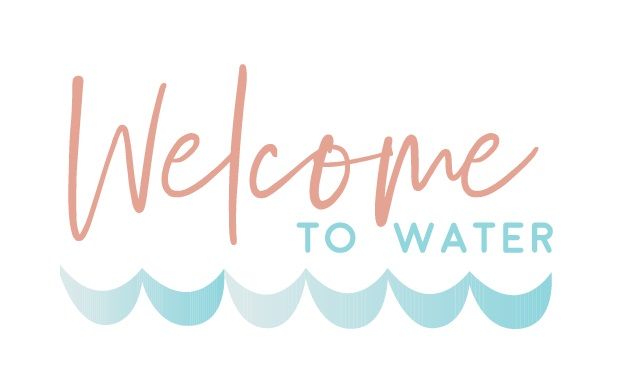Bath time with your 8 month old
Jessie Jones
Your little one is fast approaching toddlerhood and well on their way to becoming a little fish in the water too 💦
They really become so much more mobile in the next 2 months and their legs and core are getting stronger to prepare for walking. As they become more mobile they begin to get a taste for what independence feels like, which is very exciting for them. Some things may take a little longer now as they begin to want to master skills and ‘Do it themselves’ along with communicating these feelings of independence.
They will be babbling away by now as they prepare to say their first words in the coming months, it's so important to sing, read and talk to them on lots of occasions over the day. Explain what you are doing, label their favourite toys and chat to them about the things they are seeing. All of these things help to build on their rapidly developing language skills.
When you are swimming and bathing with them explain what you are doing or about to do with them e.g “I'm going to pour some water over your face" or “Let’s kick & paddle over here and reach up for the wall” and gage their response. You will now start to see more signs of their independence, this means they may object to doing things they have done with out complaint before. Talk to them about it and show empathy and understanding e.g “You don't want to go under water this time, that’s ok i won't put you under.” By sticking to what you have said and not breaking their trust you will build a strong bond and great communication between each other and your baby will feel understood.
This trust between you is one of the most important elements of swimming together confidently, once they trust you will be there to help them and not force them for activities their confidence and skills in the water will soar. Combine this trust with giving them time and encouragement for independence throughout the lesson, independence for skills like:
💦 Initiating their own submersions from sitting and standing
💦 Collecting and posting toys
💦 Kicking and paddling to move forward & during songs
💦 Crawling or walking on mats or in shallow areas
💦 Experimenting with cause and effect
Around this age you may see separation anxiety appear, in swimming lessons this may mean they want to stay with you instead of taking a turn with the teacher. Don’t force them during this time, let them be close to the teacher and form a report with out being taken off you. Eventually, when they are ready they will be happy to take a turn with them.
If another carer is taking them in for their lesson and isn’t the usual person they swim with they will need to build trust in the water just like they did with you before they will swim with them confidently and to their full ability. This carer also needs to build confidence and experience taking them in the water. These skills, trust and experience take time for both carer and baby to develop in their own time and once learnt will help to deepen the bond and communication between them.
Emerging Developmental milestones and bath activities for your 8 Month old
Looks for hidden objects:
Use some easy to open coloured plastic or silicone containers with lids cracked a little, hide toys inside and show your baby. See if they can open the containers and find the hidden toys. Talk to her about what might be inside and how to open them, shake the containers so she can hear the sound of the toy inside, let her copy too.
Passes objects from one hand to the other:
Hot potato song - Let her lay back on your drawn up legs and give her a toy to mimic you with. Sing the well know song 'Hot Potato' and transfer the toy from one hand to the other. Encourage her to copy you with her toy
Bangs objects together:
Use two plastic maracas to sing her favourite songs. Bang them together to the beat and then pass them over and let her have a turn while you sing again. You can fill small plastic containers with rice or pasta if you don’t have maracas.
Releases objects:
Fill the bath with floating balls & toys of different textures and colours and place a plastic container with a wide base so it floats along side them. Encourage her to collect certain animals, colours or objects and place them in the container. This activity also helps with her language skills as she begins to understand basic words and makes sounds back when talked to.
Begins to understand cause and effect:
Filling and pouring water into cups - Place some different sized cups/ watering cans and cups with holes into the bath. Use these to give her a massage whilst singing the popular song 'Rain Rain go away'. Sit her up and using one of these cups or watering cans practice your breath holding cues, a few times if she's enjoying it. Encourage her to tip the water on your head too and then her own. You can also ask her to tip it on a favourite toy or puppet, make sure you use the verbal cue 'Name, ready go' before pouring the water even with the toys and remember to congratulate at the end.
Mimics facial expressions:
Use a plastic mirror to show her your different facial expression - happy, sad, excited, sleepy, cross. Let her have a turn holding the mirror and copying you to make them herself. This game is great for teaching her about her feelings and emotions.
Write your awesome label here.
Write your awesome label here.
Write your awesome label here.
Breath control:
Continuing to practice breath control cues with your baby to build and extend on their breath control:
Cup of water: Cue baby "Name, ready go" pour on the forehead with a water shot. After she becomes familiar with this activity and responds positively for a few weeks, progress to an extended 2-second and then 3-second pour on the forehead. Practice this a few times each bath, Let her recover and watch for her breathing to come back to normal between each turn.
Bubbles: Demonstrate blowing bubbles in the bath water, encourage your baby to copy you. You can try noisy bubbles and blowing raspberries to help them blow out.
Bubbles: Demonstrate blowing bubbles in the bath water, encourage your baby to copy you. You can try noisy bubbles and blowing raspberries to help them blow out.
Shower: Cue baby "Name, ready go" Start with momentarily under the shower.
Progress to 2 seconds and then 3 seconds under the shower. Practice this a few times each shower, Let her recover and watch for her breathing to come back to normal between each turn.
Read and respond to your babies cues and stop the activity if your baby has had enough for the day or isn't enjoying the activity. This will build trust and communication between you and ensure that baby is happy to try again next time knowing you will respond to how she feels.
We hope you both continue to enjoy bathing and swimming together regularly, the perfect time for you to both connect, bond and look forward to.
These fun bath time activities also help to form a great base for swimming lessons together. Continue to attend regular weekly swimming lessons together, reading and responding to her cues during each activity with love and encouragement and without the use of force. Make swimming together a regular, enjoyable and enriching part of your lives.
Thank you!
CLICK THE LINK BELOW
to join our free online course, and help give your child the best possible start on their learn to swim journey.
to join our free online course, and help give your child the best possible start on their learn to swim journey.
Write your awesome label here.
Write your awesome label here.
Write your awesome label here.
Love our information? Click on sign up below, and receive a monthly update on your child's birthday, following their development with tips and tricks to do at home in the bath or pool.

© Welcome to Water
Subscribe to our newsletter now!
Get weekly updates on live streams, news and more right in your mailbox.
Thank you!

